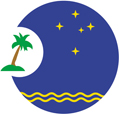The Pacific Island Forum Secretariat (PIFS) held a workshop on implementing Responsibility to Protect (R2P) commitments in ways that support and fulfill national aims and objectives.
Participants included senior government officials from the ministries of Finance, Planning, Justice, Police and Women in five countries: Kiribati, Samoa, the Solomon Islands, Vanuatu and Papua New Guinea.
Discussions will feed into countries' reviews of their national sustainable development plans.
 21 November 2014: The Pacific Island Forum Secretariat (PIFS) held a workshop on implementing Responsibility to Protect (R2P) commitments in ways that support and fulfill national aims and objectives. Participants included senior government officials from the ministries of Finance, Planning, Justice, Police and Women in five countries: Kiribati, Samoa, the Solomon Islands, Vanuatu and Papua New Guinea. Discussions will feed into countries’ reviews of their national sustainable development plans.
21 November 2014: The Pacific Island Forum Secretariat (PIFS) held a workshop on implementing Responsibility to Protect (R2P) commitments in ways that support and fulfill national aims and objectives. Participants included senior government officials from the ministries of Finance, Planning, Justice, Police and Women in five countries: Kiribati, Samoa, the Solomon Islands, Vanuatu and Papua New Guinea. Discussions will feed into countries’ reviews of their national sustainable development plans.
The workshop, held on 20-21 November 2014, in Suva, Fiji, was co-organized in partnership with the Asia-Pacific Centre for the Responsibility to Protect (APCR2P) of the University of Queensland.
Participants remarked on the conceptual shift from security as a state-focused concern involving, for example, policing or prisons, to an understanding of health, environment and inequality issues as also posing security threats. They discussed case examples of security issues in this broader context, including linkages between human security and land management in Vanuatu, disaster management in the Solomon Islands, and national policing and defense policy in Papua New Guinea.
Kiribati raised the possibility of establishing a national human security framework that would mainstream human security principles into government programmes and activities, referring to the Human Security Framework for the Pacific adopted in 2012, which serves as a guide to addressing security and development concerns up to 2015. The Framework is to be reviewed every three years.
PIFS Acting Secretary General Andie Fong-Toy noted that human security, gender equality and development concerns rarely have been considered together, and she welcomed discussions on the need to address inequality as a human security concern.
Heads of state and government endorsed the R2P principle at the 2002 World Summit on Sustainable Development (WSSD) in Johannesburg, South Africa. R2P recognizes responsibilities of states and the international community to protect populations from crimes against humanity, and to take enforcement measures authorized by the UN Security Council where necessary. [PIFS Press Release] [Human Security Framework for the Pacific 2012-2015] [Asia-Pacific Centre for the Responsibility to Protect]